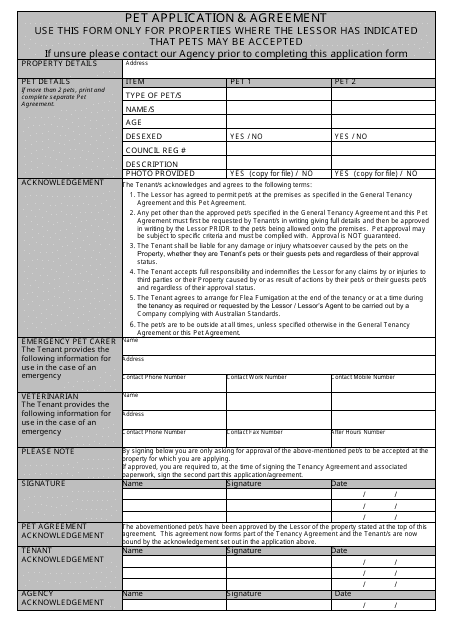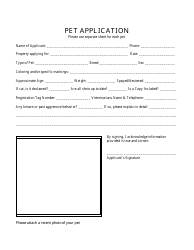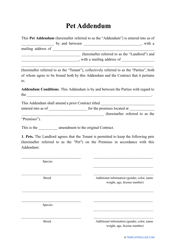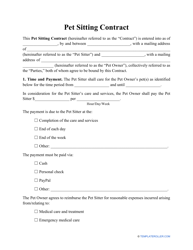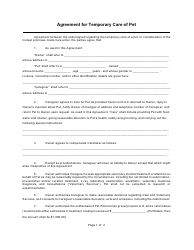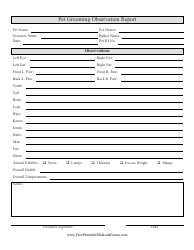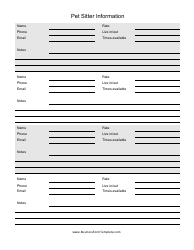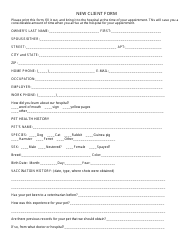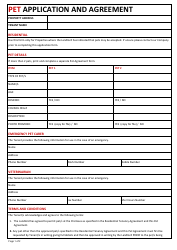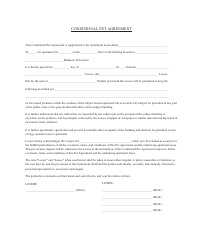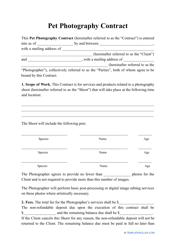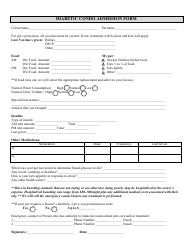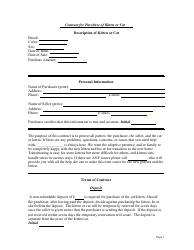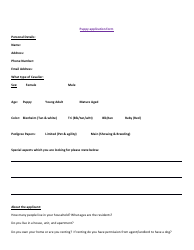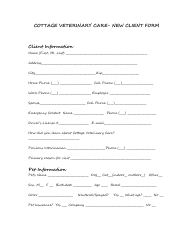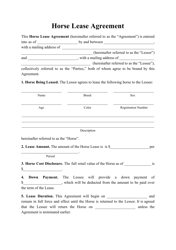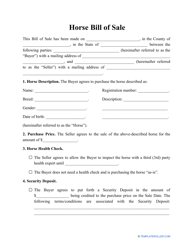Pet Application & Agreement Form
The Pet Application & Agreement Form is typically used by landlords or property managers when tenants want to have a pet in their rental property. This form is used to gather information about the pet, such as its breed, age, and size. It also outlines the responsibilities and obligations of the tenant regarding the pet, including any additional fees or pet-related rules that need to be followed.
The pet application & agreement form is typically filed by the individual or family who wishes to adopt or acquire a pet.
FAQ
Q: What is a pet application and agreement form?
A: A pet application and agreement form is a document that is used by landlords or property managers to gather information and set rules and guidelines for tenants who want to have pets in their rental property.
Q: Why do landlords use a pet application and agreement form?
A: Landlords use a pet application and agreement form to screen potential tenants with pets, to ensure that the pet is suitable for the property and to establish rules to protect the property and other tenants from any potential damage or disturbance caused by the pet.
Q: What kind of information is typically included in a pet application and agreement form?
A: A pet application and agreement form usually includes information about the pet such as its breed, age, and weight, as well as details about the pet's vaccinations, licensing, and any training or certification it has received. The form may also require the tenant to provide contact information for a veterinarian and agree to follow specific pet rules and guidelines.
Q: What are some common rules that may be included in a pet application and agreement form?
A: Common rules that may be included in a pet application and agreement form include requirements to keep the pet on a leash or in a designated area, to clean up after the pet, to prevent the pet from causing excessive noise or damage to the property, and to follow any breed or size restrictions set by the landlord or property management.
Q: Can a landlord refuse a tenant with a pet?
A: In general, a landlord can refuse to rent to a tenant with a pet if they have a no-pet policy in place. However, there may be exceptions for tenants with service animals or emotional support animals, as these are protected by federal and state laws.
Q: Can a landlord charge an extra fee or deposit for tenants with pets?
A: Yes, a landlord can charge an extra fee or deposit for tenants with pets. This is often referred to as a pet fee or pet deposit and is meant to cover any potential damage caused by the pet. The specific amount and terms of the fee or deposit can vary.
